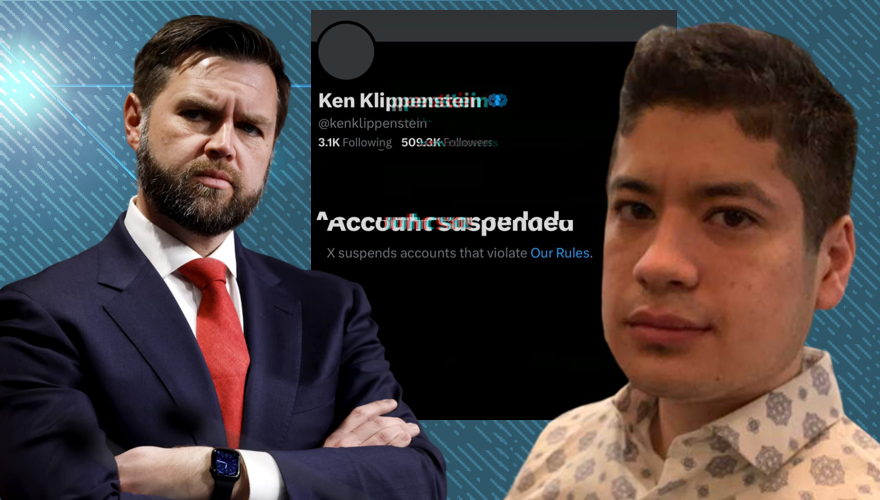Investigative journalist Ken Klippenstein defended his publication of a dossier on Republican vice-presidential candidate J.D. Vance that included personal information.
On Thursday, in a Substack post titled “Read the JD Vance Dossier,” Klippenstein published a document that appears to be written by the Trump campaign for internal purposes. The journalist speculated that the dossier was leaked from “an alleged Iranian government hack.”
“The document is clearly newsworthy, providing Republican Party and conservative doctrine insight into what the Trump campaign perceives to be Vance’s liabilities and weaknesses,” he wrote. “Those perceptions provide clues about what a campaign of remarkably little substance might actually think.”
Klippenstein’s account was subsequently suspended.
Other users pointed out that they could not send the link to Klippenstein’s post via X DMs or share the link in a post.
In a screenshot shared by one user, X issued the following explanation for not allowing the post to be shared: “We can’t complete this request because this link has been identified by X or our partners as being potentially harmful.”
Many users, including X owner Elon Musk, criticized Klippenstein for doxxing Vance by publishing the dossier.
“This is one of the most egregious, evil doxxing actions we’ve ever seen,” Musk wrote on Thursday. “Presidential candidates are not speculatively in danger – there have already been two attempts on Donald Trump’s life. Moreover, the doxxing included detailed information on the addresses of their children.”
In an exclusive interview with Breaking Point’s Krystal Ball on Friday, Klippenstein defended his publication of the unredacted dossier.
“The reason we did this was intentional,” he said. “The whole point of the story is that we are tired of adhering to norms that exist to deprive people of information. It felt dishonest to decide, ‘Oh, but we're gonna do this for a public figure running for vice president,’ especially when the media has done segments in front of his house.”
“At a certain point, I ask: what is the point?” he continued. “This is a public figure with a security detail facing less risk. I understand I'm probably in the minority here, but that’s my philosophical position on freedom of information.”
Klippenstein also claimed all the information was publicly available.
“I could go on my computer right now and pull up any of this information they’re talking about,” he said. “Journalists do it all the time. Corporations sell this stuff. The people running for office preside over a legal system that does not regulate that kind of information. It's out there in the open; you can literally Google and find all those addresses.”
Ball, who said she would not have opted to include the personal information, suggested Vance’s family could be impacted.
“Yes, you can dig and find his address, but as public figures — though you and I are less so than J.D. Vance — I’d prefer a few hoops for people to jump through to find my home address,” she said. “It reduces the likelihood of craziness at your doorstop.”
“I spent a long time interrogating my views,” Klippenstein replied. “This whole story is about media paternalism. At a certain point, I wondered how you draw a line. It felt hypocritical in the context of our story about media paternalism to say, ‘We know better.’ I considered the knock-on effects, and since half of the social security number is redacted, it’s in the report because that's how they were able to get it.”
The former contributor to The Intercept and The Young Turks indicated that he plans to publish a redacted version of the report to comply with X’s terms of service.
Klippenstein said this would put “the onus on [Musk] and still [have] the document available in some form.”
He added: “I think what you'll find is that this whole situation wasn't about the doxxing; it was about the hack of a political candidate whom he has given large sums of money and hopes will win.”
Klippenstein then brushed off Musk’s accusation as “hysterical” comments that “come in the context of other crazy things he’s said.”

